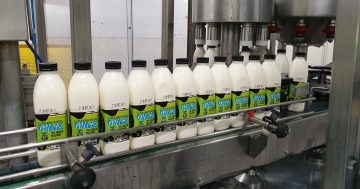
How would you feel about being charged an interest rate of 800%? How about finding out that an institution that refused you a loan then sold your financial information to another company? Or being bombarded with new offers to take out unaffordable loans even after you have defaulted on a previous loan?
Last year a government inquiry into the ‘payday loan’ and ‘rent-to-buy’ industry reported on these practices in its final report and made a raft of recommendations to Government about changes that could be made to better protect vulnerable consumers. Finally the Government has agreed, and moved this week to accept recommendations that aimed to stop some of the most unscrupulous practices.
This is an industry that has sprung up and grown exponentially in recent decades. A 2015 study estimated that in 2012 over one million Australians had taken out a ‘small amount credit contract’ – these are most often for loans of under $2000 that must be repaid within 12 months. These loans were valued between $800 million and $1 billion – a staggering amount. The industry works hard to make sure that these loans are repaid through practices such as ensuring bills are paid via Centrelink prior to any other funds being provided to individuals. This has proven to be an effective revenue stream. For example, in 2015 it was revealed that more than half of Radio Rentals revenue (that’s $90 million) was made from Centrelink in one year alone. It has been argued by consumer advocacy groups such as the Consumer Action Law Centre that practices used by these institutions are predatory and deceptive.
The new measures aim to fetter the most unfair of these practices. Some key measures include caps on the amount of interest that can be made that are proportional to the item purchased, and caps around the amount of repayments made that take into account an individual’s income. It will take time for these to be implemented – this is a powerful industry and it has secured long lead in times for the new measures to take effect. It’s a start however, and will begin to tip the scales in consumers’ favour.
People might ask – why would anyone accept these blatantly unfair terms? Most often it’s because people don’t feel that they have any other choice. These companies target the poorest in our community – those who are unable to get credit from mainstream sources such as banks. It’s my experience that people on the lowest incomes are some of the best money managers – you have to be when there is so little money coming in. If you are receiving a Newstart allowance however, it is not actually possible to live on $38 a day for more than a few weeks. You can get by for a little while but when something goes wrong – someone gets sick, a fridge stops working, the car needs repairs or the kids need new school shoes, there is just not enough money to go around. When this happens, often people think these short term loans are the only way to get over the crisis. The problem is that it creates more problems down the track once you get locked into high fees, further predatory targeting and you are caught in a poverty trap.
Some good news is that there are alternatives. There are community organisations including Care Financial Counselling and the Salvation Army that can provide no interest loans for people on low incomes to pay for essential items, medical expenses and other unexpected costs. The Australian government provides information regarding a range of low cost options via the website https://www.moneysmart.gov.au/. Even some of our biggest companies are starting to realise they have a role to play. This week HESTA announced that they would support their members who face financial stress and are partnering with micro-financing not-for-profit groups to provide greater assistance.
In the lead up to Christmas, many of us will be suffering financial stress and may be tempted to look at these loans to solve our money issues but most of the time it just creates more trouble. Have you had an experience with these payday lenders? What do you think we should do about these loans that trick and often trap people into long term debt?
Information regarding no-interest-loan programs in the ACT can be accessed via http://www.carefcs.org/ and https://salvos.org.au/need-help/financial-assistance/nils/





















